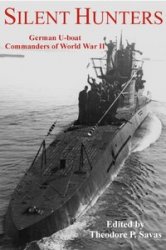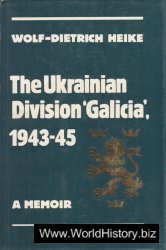The Impact of the Book Distribution Project and its Contribution to the Ideological Victory of the West
A U. S. Government official aptly described the power of the book when he stated at a senate hearing: “Books differ from all other propaganda media, primarily because one single book can significantly change the reader’s attitude and action to an extent unmatched by the impact of any other single media.”1322 A recent U. S. Government document briefly mentions the non-radio programs of Free Europe, Inc. and Radio Liberty, namely their sponsorship of book distribution programs. According to the report, from the late 1950s until 1970 the two organizations distributed a total of two-and-a-half million books and periodicals in Eastern Europe and the Soviet Union. “The book programs,” the report states, “are, for the most part, demonstrably effective in reaching directly significant segments of the professional and technical elite, and through them their colleagues in the Soviet Union and Eastern Europe, with material that can inferentially be said to influence attitudes and reinforce predispositions toward intellectual and cultural freedom and dissatisfaction with its absence.”2 George
Chief of the CIA’s Covert Action Staff to the Church Committee, in “Foreign and Military Intelligence, Book I. Final Report of the Select Committee to Study Governmental Operations With Respect to Intelligence Activities, United States Senate Together With Additional Supplemental, and Separate Views,” April 26, 1976, 193 (Washington, D. C.: U. S. Government Printing Office).
Foreign Relations of the United States, 1969-1976, Vol. XII, Soviet Union January 1969-October 1970, 463 (Washington, D. C.: United States Government Printing Office, 2006).
Minden further refined the concept when he wrote: “All book distribution is politically significant because all books—political and literary—accomplish the political task of making the ideological isolation of Eastern Europe difficult and thus frustrate one of the communists’ main political objectives. For the communists, too, all Western books, whether political or non-political, are politically significant and feared as such.”3
In reality, the book project was ideological, political, cultural, and psychological warfare all wrapped up in one, using not pressure or force but enlightenment and persuasion by means of the printed word, with a prime emphasis on culture. Books were meant to reach the minds of the captive people living under oppressive communist regimes by breaking down the ideological and cultural Iron Curtain and by opening wide a window on the culture and achievements of the free Western world. Throughout the many years of the program, it can be said that practically all leading members of the East European intelligentsia, as well as some members of the party and managerial elite, received books and periodicals either through the mail or directly, when visiting the West. Their names figure in the PSPD/IAC statistical reports and include practically all prominent writers, literary critics, philosophers, university professors, sociologists, economists, scientists, journalists, artists and art critics, musicians, bishops and clergymen, and many thousands of teachers and students who were eager to receive and request Western books, dictionaries, and periodicals. All major cultural, scientific, and professional organizations, government and state offices, public libraries, university libraries and faculties, church institutions and seminaries, literary and other magazines, museums, and many schools also received a steady flow of books and magazines, considerably multiplying the number of readers. The result was the receipt, by the thousands, of letters of acknowledgement and/or of request from grateful recipients. Unfortunately, the original letters have not been located and may have been shredded by Minden himself, a private man, to protect the identity of their writers, many of whom are still alive today. Because of their sheer number, there is little 1323 1322
Hope that these letters have been preserved, with the possible exception of those letters sent to Washington as annexes to Minden’s various reports. Fortunately, excerpts from the most interesting letters received between 1963 and 1973 were included in the various reports available in the RFE/RL Corporate Records and preserved.
On the basis of this vast, authentic, and well-documented written evidence, it can be said with absolute certainty that the massive joint American-West European covert book distribution project—which John Matthews aptly called “the West’s secret Marshall Plan for the mind”—had a significant impact and influence on intellectuals, professional people, and thousands of students and youths in Eastern Europe during some four decades of Soviet communist domination. The key role and large contribution of the United States in the launching and the implementation of the book project throughout the Cold War also deserves a tribute. One-and-a-half year after the start of the book mailings, the legendary head of Radio Free Europe’s Polish section, Jan Nowak, cited the words of thanks of a Polish recipient of a scientific book and commented: “This activity deserves tribute not only to the Free Europe Committee, but also to the American people. I am sure that the time will come when this moving story can be told and will gain America the gratitude and appreciation of the Captive Peoples.”1324
The Cold War can be described as essentially a war of ideas through the political use of culture, and was part of an overall ideological competition between the East and the West. The book project and many other projects were part of the very comprehensive American policy of containment devised by George Kennan to prevent the spread of the Soviet empire beyond Eastern Europe. On the one hand, the U. S. wanted to counter the communist appeal among intellectuals in Western Europe and the Third World, and on the other, to make it more difficult for Moscow to achieve full control over the satellite countries. “While the CIA led the implementation of the government’s
Cultural strategy, it was a ‘total’ strategy which involved all agencies of the [U. S.] Executive [...] The operations were part of an integrated strategy [...] To put it bluntly, if the U. s. government had not covertly funded the ‘private’ efforts or in some cases, assisted in their funding through foundations, they could have never existed.”1325
People in the intelligence community who knew about the book program described it as a huge success and one of the best things the CIA ever did. Minden’s son Paul recalled that his father “was very content with the work he had done. The operation was so complex and demanded such an intricate knowledge of numerous countries, cultures, systems and players, that my father took some pride, quietly, in knowing that his shoes would have been impossible to fill. This was true also in that he was the only one who knew all the players, while others had at the most a piece of the puzzle. He was especially satisfied that he had done it his way.” Early on, Minden told the CIA that if the book project’s aim was to tell people what to think, the West would do no better than the regimes it wanted to undermine. He did not want to feed propaganda to the people of Eastern Europe, but, as Paul said, to “present them with options and give them access to what they wanted. To their credit the CIA saw the wisdom in this and let my father run the operation his way.”1326
to the uninterrupted and steady flow of Western books and publications, the total number of which, in Minden’s estimation, certainly must have reached ten million, Western political ideas and Western culture, by means of dictionaries and books on languages, art and architecture, sociology, religion and philosophy, economics, management, and farming, history and memoirs, and catalogues, were able to penetrate the cultural Iron Curtain, despite the attempts of the communist postal censors and customs officials to stem the flow. Ultimately, they were forced to admit defeat just like those who tried to jam the radio broadcasts of Radio Free Europe and other Western radio stations. The intellectuals of eastern europe were able to break out of their cultural and ideological prison and to remain in touch with their counterparts in the West. in this particular type of psychological and cultural warfare, the ultimate victory belonged to the West, with the fall of the iron Curtain and the end of the Cold War, a victory in which books played a uniquely decisive role.
In his 1991 memo, Minden wrote: “iLC’s operations have never been part of the Cold War. They have always been targeted, information-directed, and tightly controlled.”1327 Even so, the CiA-funded, Walker-launched, and Minden-managed book mailing and distribution programs, covering a period of over three decades, played a decisive role, by contributing, together with the radio broadcasts, to the West’s ideological victory. They did so at a relatively low financial cost and without any loss of lives. For Minden, who abhorred violence, this must have been a source of great personal satisfaction. While anyone could switch on the radio, jamming permitting, the book project had more selective targets. it will remain an open question which of the two operations made a greater contribution in the struggle for the minds of the captive people of Eastern Europe. But millions of people were affected one way or another by the book project without ever hearing about its existence.




 World History
World History









